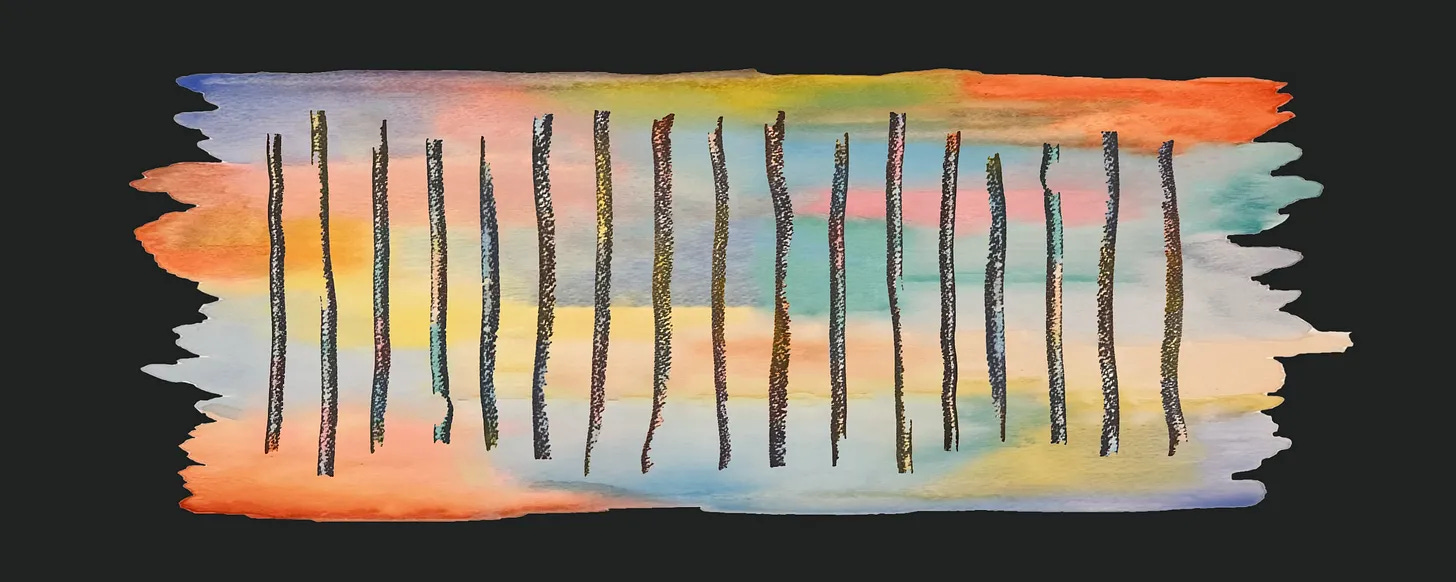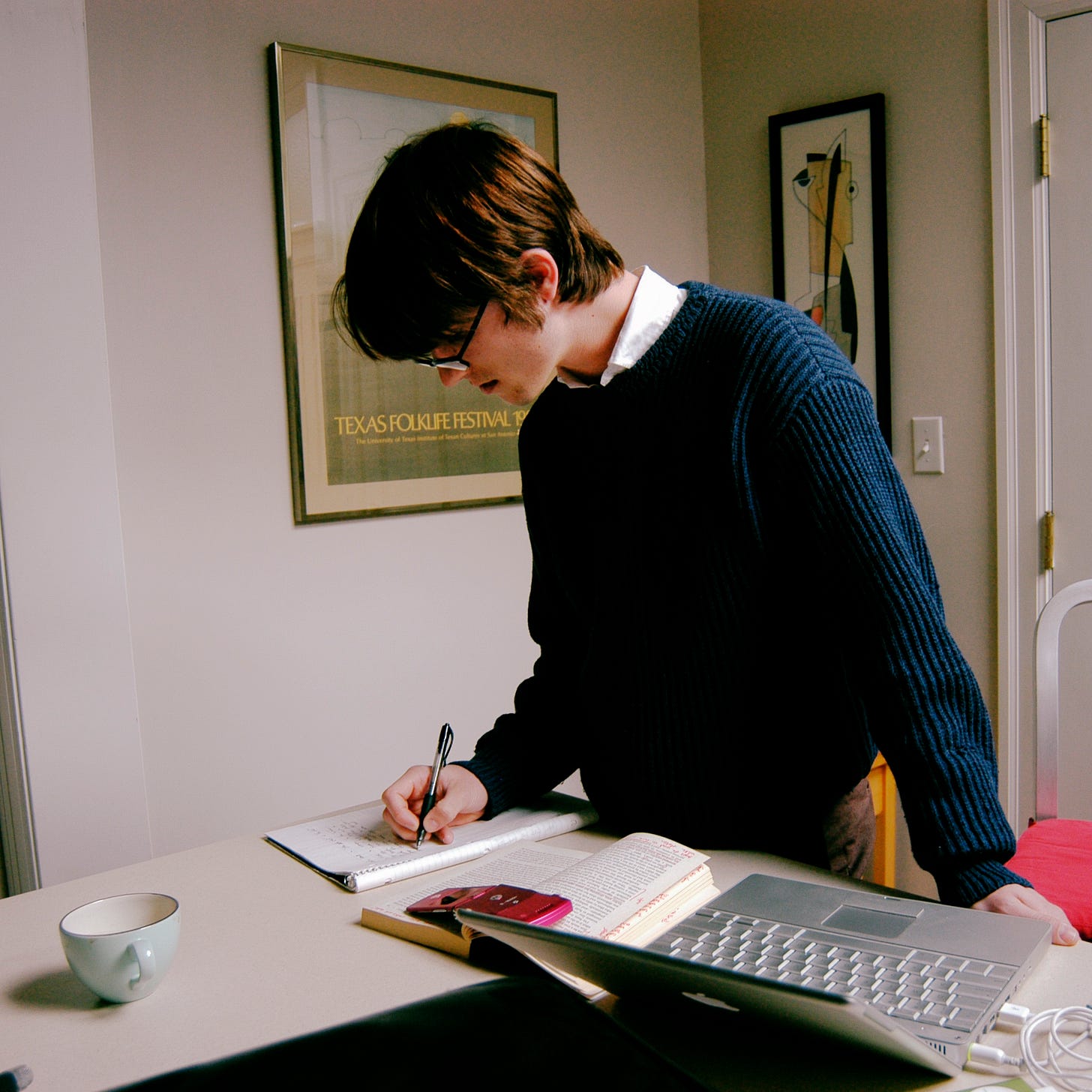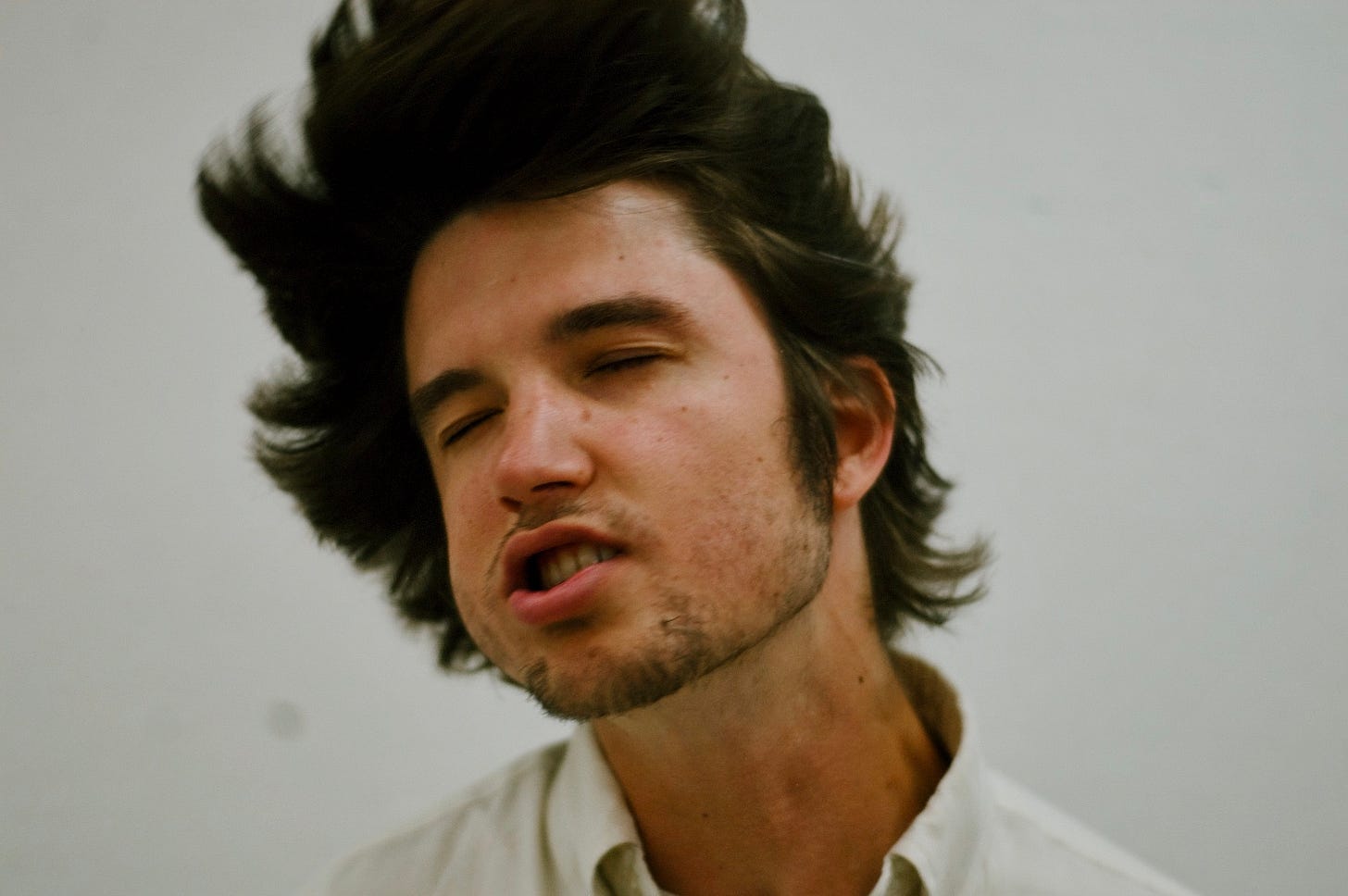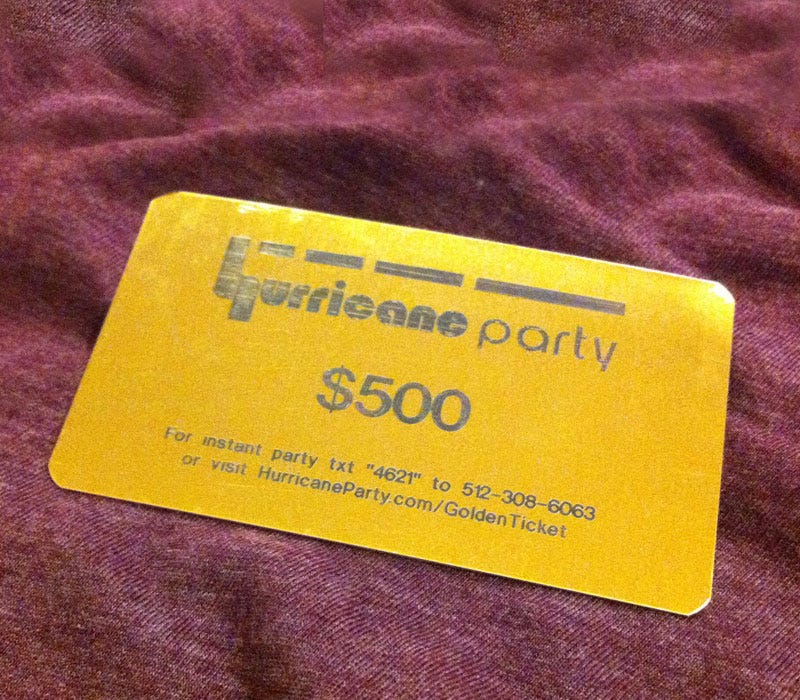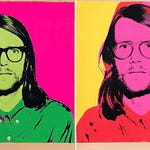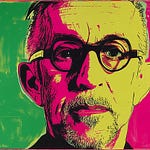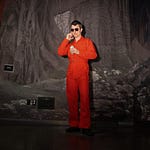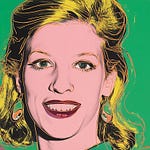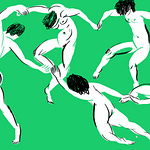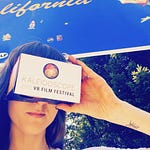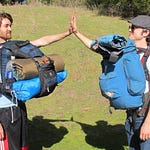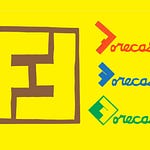OBSESSED is a living memoir of my 17-year quest to build Artizen — from idea to escape velocity and beyond. New episodes every week until the story ends or the rocket explodes.
Read Previous → Episode 2: Everyone is Barfing
Last time on OBSESSED: I got my first greenlight from MTV, watched it turn into a barf-soaked disaster, and found myself back in Austin with Jen and Kip—the spark of a new idea flickering.
I become the asshole
I was gutted, but not ready to give up. MTV might have bailed, but I loved our show. So I negotiated the rights back, ready to hit the street.
By then, it was 2006, and YouTube was blowing up—suddenly, making TV for the internet wasn’t so crazy. A friend tipped me off to a new company in Austin called OnNetworks. They raised $16 million to produce high-quality, low-budget shows for the web. It sounded perfect. I cold-called them, and somehow got a meeting with the co-founders Jen and Kip. They listened to my pitch, asked thoughtful questions, and treated me as a peer, even though I was just a snot-nosed kid.
Shockingly, they ordered a full season—renamed
Backpack Picnic. We got paid $10,000 per episode—just enough to scrape by. But more importantly, we got creative freedom.
After a year of working together, Jen and Kip offered me a full-time role. This was my first “real job.” And I was getting paid to do exactly what I loved—scouting talent, funding projects, and helping creators bring their visions to life. Living the dream.
But the dream had a cost. My inbox began to swell with pitches from hopeful creators. Between meetings, shoots, and the endless stream of project proposals, there simply weren’t enough hours in the day.
And then, like every overworked junior exec, I start taking shortcuts. Famous names? Check. Friends’ projects? Sure. Anything that looked, felt, or vaguely smelled like something that had worked before? Rubber-stamped. Safe bets were all I could handle.
A queasy feeling builds inside of me. Have I become the asshole? The guy I hated when I was on the other side of the table? The gatekeeper who decides which projects live or die for bullshit reasons. A cog in the loaded slot machine, where the suits get rich, and the artists go broke.
That’s when the whiteboard comes out.
Hurricane party!
“It’s like a giant vacuum cleaner. But for money!” Jen and Kip stare at me like a crazy person. Oh shit. I’m totally fired.
Only—they don’t fire me. Instead, Jen and Kip exchange a look. “This is... actually pretty cool,” Jen says. “I mean, there’s no way we’re building this at OnNetworks. But you might be onto something.”
Hurrah! I’m not insane.
“You know, what you’re doing here has got a name. It’s called Design.” Kip explains that the best designers don’t just build products; they reimagine how entire systems work.
My life as a filmmaker is over. A new path opens up, clear and burning with purpose. Off to design school I go. But I hate it. The professors all have boners for Edward Tufte. We spend an entire year just talking about maps.
Kip comes to the rescue. “Check out Capital Factory,” he tells me about a new accelerator in Austin. “Great way to learn about startups.”
I want to apply with my Big Idea—the magic vacuum cleaner in the sky, hoovering up capital, raining cash on creators—but it feels too ambitious and weird for a first-time founder. I need a warmup idea, something on trend, to prove I’ve got my finger on the pulse.
What if we build an app to create flashmobs with your friends? Two people bump phones, we find mutual contacts, and text: “Party happening now! Get here fast!” Each new person bumps, the invites keep spreading, the flashmob keeps growing.
We’d call it Hurricane Party.
I pull in my friends Eric Katerman and Avram Dodson, we pitch to Capital Factory—and get in. $20,000 and twelve weeks to turn our crazy idea into a business.
Titans of the Austin tech scene—Josh Baer, Mikey Trafton, Russell Hinds, Jason Cohen—cram hard-earned startup lessons through our thick skulls with a sledgehammer. 72-hour work sprints, sleeping under the desk. Our office has no AC after 5 p.m. and none on weekends. Texas, in summer. By Sunday, we’re all in our underwear, sweating it out. The air barely moves—if anyone farts, it just hangs there. We call it “baby pants.” Gross, miserable, but the intensity is addictive.
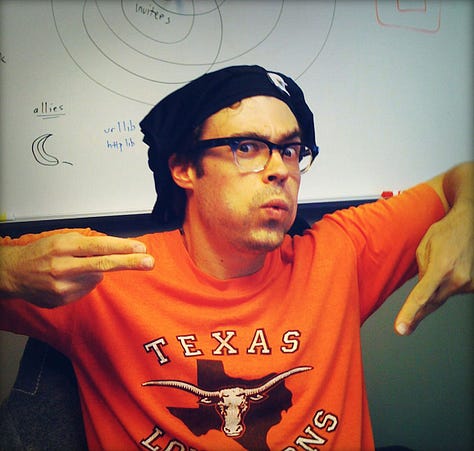
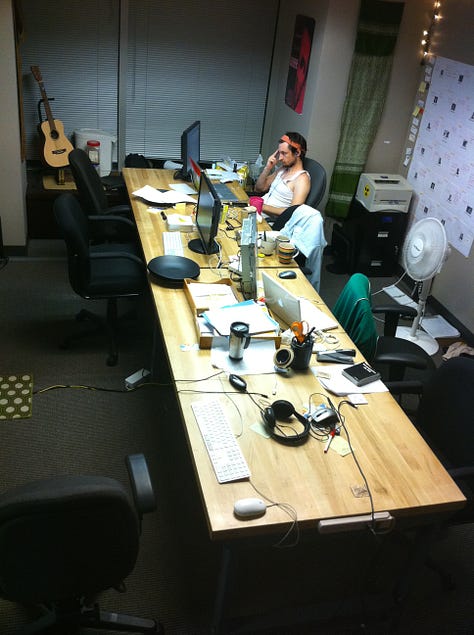
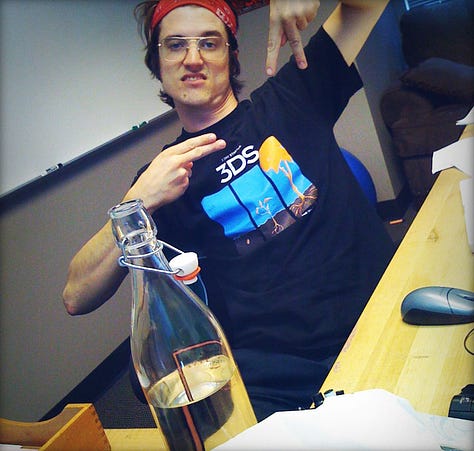
Our goal? Launch by SXSW. Twitter and Foursquare had blown up there, and we’re determined to be the next breakout hit. Our plan? Golden Tickets. We hand out brass cards to influencers—each with an engraved code—and if they throw a Hurricane Party, I show up on my scooter and buy drinks for the bar. Brilliant in theory. In reality? Pure hell. Out till 3 a.m., buying booze for tech bros.
Then comes the “big one”: tech writer Robert Scoble calls in his Golden Ticket. The whole team races over, giddy to meet him. But as I ply the great Scobleizer with margaritas and cupcakes, it hits me—what the hell am I doing? I hate bars, I hate drinking.
But it works—I open our app and see hurricanes spinning all over Austin.
Then I find out we’ve been nominated for “Best New App at SXSW.” We rally everyone to vote. We start to climb the leaderboard, beating apps like Uber, Instagram, and GroupMe, until we’re neck-and-neck with just one: LocalMind. Every time they bump up a slot, I stare at the founder’s name—Lenny Rachitsky—and curse. “Fucking Lenny! Just give up already!” Lenny is now a friend and advisor to Artizen, but at the time I hated him with the fury of 1,000 suns.
It’s down to the wire, but we win the bullshit poll! We win SXSW!
I ride a wave of momentum into Demo Day, the culmination of Capital Factory, where we pitch to a roomful of investors.
Naval Ravikant gives the intro talk. I climb on stage and nail my pitch. The stars are aligning. We’re gonna raise millions, go viral, and make the cover of WIRED.
Love,
René Pinnell
Founder of Artizen
Read Next → Episode 4: Bad Forecast



